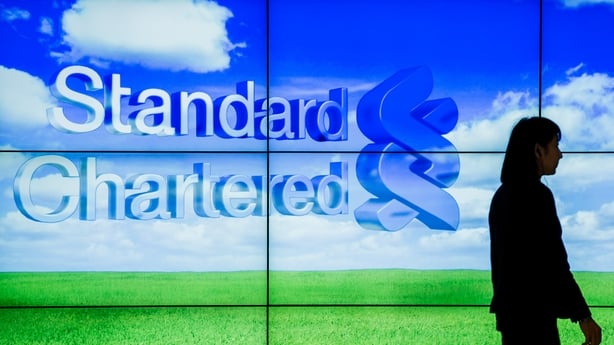Standard Chartered today unveiled plans for an up to $1 billion share buyback, its first such in at least 20 years.
It also posted a 10% rise in quarterly profit, signalling the bank was seeing early success in its turnaround strategy.
The share repurchase plan comes after StanChart CEO Bill Winters unveiled in February ambitious plans to double return on tangible equity and dividends in three years by cutting $700m in costs and boosting income.
Winters won plaudits from investors for his initial three-year plan that began in June 2015 when he focused on revamping the risk culture, slashing costs and purging bad loans that had accumulated in a post-2008 period of over-aggressive growth.
But the CEO then faced a tougher task, as StanChart battled to switch to growth from restructuring at a time when slowing economic growth in core Asian markets, volatile commodities markets and the impact of the US fines hammered profits.
The bank's London shares have fallen 42% since the former JPMorgan banker took over as CEO.
Standard Chartered said today that it had received regulatory approval to start buying back shares worth up to $1 billion, and that StanChart was now able to manage its capital position "more dynamically".

"We will maintain our strategic investment programme and start to buy back $1 billion of our shares, reflecting our confidence in our ability to execute the strategy and create long-term shareholder value," Winters said in the statement.
Pretax profit for StanChart, which focuses on Asia, Africa and the Middle East, grew to $1.38 billion in the three months from January to March from $1.26 billion a year ago, the London-headquartered bank said.
StanChart announced this month a $1 billion settlement with the US to bring to a close a long-running probe into whether the bank continued to violate sanctions after 2007, when it said it would no longer do business with Iran.
In addition to the $900m provision the bank made in 2018, it took a "further and final charge" of $186m in the first quarter, StanChart said.
The bank said its core capital ratio, a key measure of financial strength, fell by 30 basis points from the end of December to 13.9%, with the cost related to resolution of the alleged sanctions violation shaving off seven basis points.
The share buyback programme, which the bank said will start imminently, is likely to reduce its capital ratio in the second quarter by roughly 35 basis points, it said.
StanChart's performance in the three month period was boosted by strong results in its financial markets businesses, with foreign exchange and interest rates trading revenues both up 20% from the same time last year.
The performance was especially notable in a quarter where most US and European investment banks' trading arms have suffered badly, hit by lower market volatility which cut commissions from clients' trading.
The global macroeconomic outlook remains uncertain but there were signs of sentiment improving towards the end of the first quarter, said the bank, which gets the bulk of its revenue from Asia including China, which was hit by an economic slowdown last year.
March data, however, suggests that the Chinese economy, the world's second-largest, may be starting to bottom out, buoyed by stimulus measures ranging from higher infrastructure spending to massive corporate tax cuts.
The bank's operating costs were 2% lower in the first quarter, it said, adding that it would continue to invest heavily with an "increasing proportion into strategic initiatives on digital capabilities".

